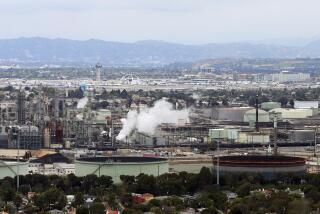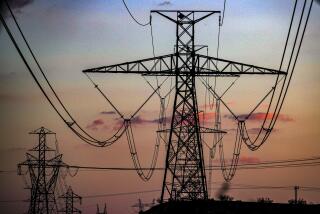El Paso Electric to Refund $14 Million
El Paso Electric Co. on Thursday agreed to refund $14 million and forfeit power trading privileges for two years to settle charges that it schemed with Enron Corp. to manipulate California’s electricity market during its power crisis.
In August, the Federal Energy Regulatory Commission launched a formal investigation into whether Enron used El Paso Electric and Avista Corp. to circumvent trading rules as California reeled from blackouts and soaring wholesale power prices from late 2000 through mid-2001.
Enron used power generated by El Paso Electric to launch a scheme known as “Fat Boy,” FERC lawyers alleged in documents filed with the agency Thursday. The trading strategy involved collecting payments for creating fictitious congestion on California’s power grid.
FERC attorneys accused El Paso Electric of giving control of some of its power plants to Enron without FERC approval and failing to notify the agency of an arrangement in which Enron sold power on its behalf.
The agency is separately investigating Enron for its aggressive wholesale electricity trading strategies, which helped the company boost its profit during the California power crisis.
El Paso Electric, a Texas utility, is not related to El Paso Corp., the natural gas pipeline company involved in other California-related cases before FERC.
El Paso Electric agreed to refund $14 million in revenue from wholesale power deals and to refrain from making market-based electricity sales through the end of 2004, the firm said.
FERC lawyers did not identify how much El Paso Electric allegedly profited from its participation in Enron trades.
However, El Paso Electric reaped $7.3 million in revenue in June 2000 alone through its arrangement with Enron, according to documents filed at FERC this year.
As part of the settlement, El Paso Electric traders also will cooperate with FERC lawyers who are trying to determine to what extent Enron was using improper trading schemes, according to the FERC documents.
More to Read
Inside the business of entertainment
The Wide Shot brings you news, analysis and insights on everything from streaming wars to production — and what it all means for the future.
You may occasionally receive promotional content from the Los Angeles Times.










